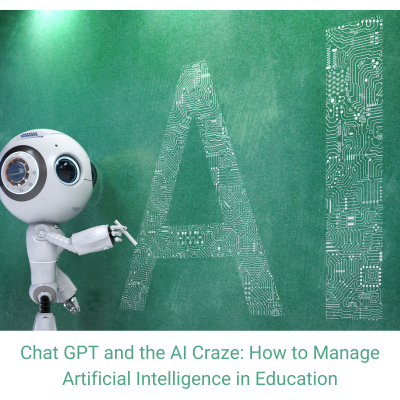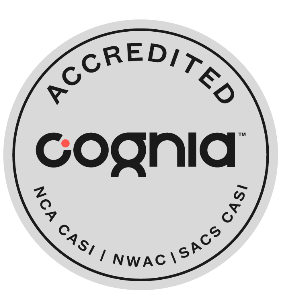Many people are enthralled with the likes of ChatGPT, pondering artificial intelligence’s sci-fi possibilities and playing around with its uses, but the reality is — AI has already infiltrated society.
That doesn’t mean Sarah Conner needs to hide from a Cyberdyne Systems Model 101 Terminator. Rather, one need only ask Siri or Alexa for directions, have a misspelled word corrected by spellcheck, or do a Google search to experience AI. Even playlists on sites like YouTube and Spotify tap into computer-generated algorithms.
In this week’s episode of Connect Canyons, we sit down with Instructional Support Specialists Emma Moss and Jonathan Stewart to discuss the future of AI and its impact on education here in Canyons School District.
“This will be part of the future our students will be a part of,” Stewart says, “so we want to prepare them for that world and possibly give them a leg up in that innovation sphere that Canyons likes to be in.”
Stewart marvels that AI tools once dreamed about on TV are now a reality, such as being able to talk into your watch a la Dick Tracy or doing video calls like the Jetsons. The technology has myriad possibilities in education — from writing lesson plans, helping with grading to revising courses and assisting students with tricky mathematics (e.g., Photomath).
“At Canyon School District, we really want to provide our students opportunities to be college- and career-ready and without AI right now, they won’t be,” Moss says, “and so as far as the classroom goes right now, we’re working on implementing with educators as they’re using it as a tool to help modify and differentiate instruction.”
Stewart and Moss agree, AI can be used to help educators in the classroom and should not be viewed as a futuristic robot that will one day replace teachers all together.
“There are a lot of AI tools out there, like Magic School AI which is a fantastic tool for educators,” Moss says. “It will generate rubrics and lesson plans and things.”
Stewart emphasizes tools like these help educators save time so they can focus on one-on-one time in the classroom but there are also laws and restrictions already in place to help protect student privacy.
“That’s part of the vetting process we’re doing right now,” says Stewart “and one thing I appreciate that Canyons is doing is we’re not automatically saying no, we’re just putting the protocols in place.”
The District is already working to keep students safe as we recognize Digital Citizenship Week, Oct. 16-18. All schools teach at least three lessons a year and incorporate Thrive Time throughout the year while further emphasizing digital citizenships: Being informed, inclusive, engaged, alert, and balanced.
Though there are potential pitfalls to AI related to plagiarism and copyright issues — a hurdle education dealt with when Wikipedia stormed onto the scene years ago and Chat GPT followed within the last year.
“I think it’s all about perspective and understanding that there are broader skills and applications we can use beyond just ‘Oh no, they can write a three-page paper,’” says Stewart. “Which, if they did, it would never pass by the way.”
Moss agrees, noting there are endless possibilities for AI to enhance learning and support accessibility for students.
“I think if we shift our mindset from just cheating, to what is the possibility for creating and collaborating, and connecting,” says Moss, “then AI becomes a little less scary.”
Both Moss and Stewart encourage parents, educators and students to try out various AI tools in order to begin gaining a better understanding of where technology is heading.
“I always used to say, ‘If you’re hearing about it, your child heard about it two weeks ago,’” Moss says. “So sit down and have those conversations with them, ask what they know about AI and how they’re seeing it be used. Talk to them about appropriate uses you feel is best for your family and get them thinking about possibilities of integrating it into their future life.”
Stewart encourages parents to visit the Family Connections portion of the District website to learn more about AI and its potential uses when it comes to education.
“I really believe that here at Canyons we do a great job of not only providing balance for innovation,” Moss adds, “but also for helping your students be prepared and safe and just ready to move forward in a world that really is going to have AI integrated in a lot of different ways.”






